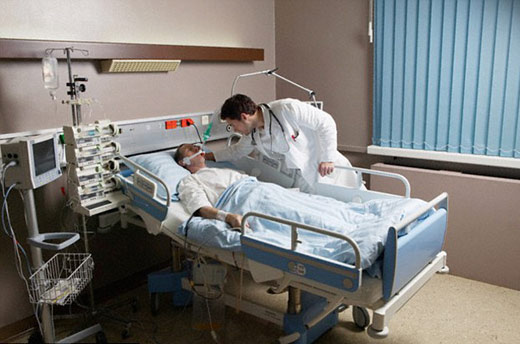
研究:醫(yī)生離世時更安詳
Doctors are LESS likely to die in hospital
Doctors are less likely to die in hospital, have surgery or be admitted to intensive care, than the general public, new research has revealed.
一項新研究表明,比起普羅大眾,醫(yī)生死于醫(yī)院、接受手術(shù),或接受重癥監(jiān)護的幾率更低.
While most people report a wish to die at home rather than in a medical facility, the majority of deaths do occur in a hospital or nursing home setting.
多數(shù)人都希望能在家安詳?shù)仉x開人世,但他們往往最終死于醫(yī)院,或在養(yǎng)老院離世.
However, a recent study suggests doctors are more likely to die in a manner more consistent with end-of-life wishes, than the general population.
不過,近來一項研究表明,比起普羅大眾,醫(yī)生更有機會如自己所愿的那樣安然離世.
Experts suggest one of the reasons doctors may receive less intensive end-of-life care is because they are all too aware of the burden it places on both the patient and their loved ones.
專家指出,醫(yī)生較少接受臨終陪護的原因之一,是他們在有生之年閱盡了病人和他們的家人在這方面所受的負擔(dān)和苦楚.
Another reason, they put forward, is that doctors know better than most the benefits of palliative care in the home - and are able to afford to pay for the often expensive nursing.
另外,家庭安寧護理具有何種優(yōu)勢,醫(yī)生也更心知肚明.而且,他們往往負擔(dān)得起高額陪護費.
The study examined whether doctors receive higher or lower intensity end-of-life treatments compared with non-physicians.


















































